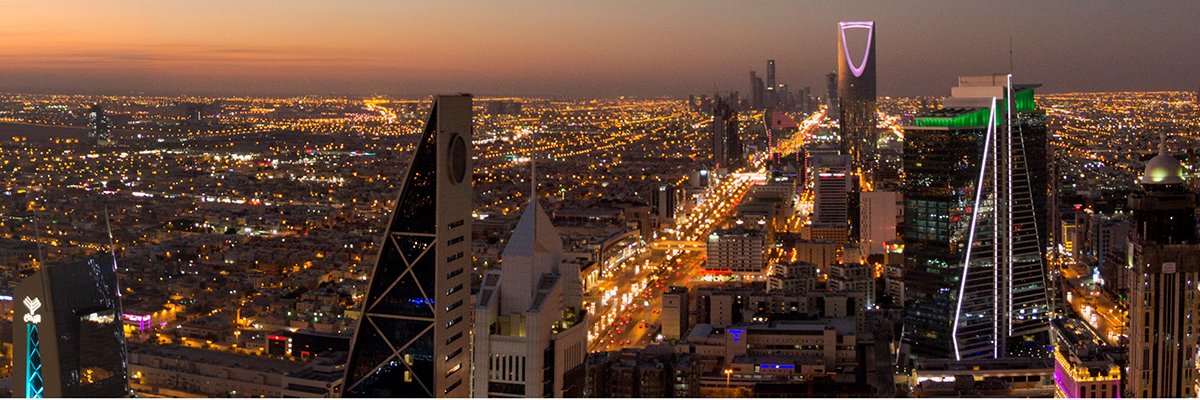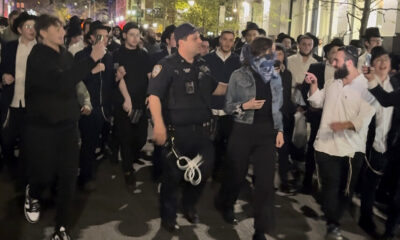Tech News
Saudi Arabia calls for humanitarian AI after tightening screws on rights protesters

Saudi Arabia (KSA) has called for a global agreement to govern artificial intelligence (AI) with humanitarian and democratic values, earning the incredulity of rights activists campaigning to free people imprisoned for decades for criticising the Gulf state on social media.
Using the diplomatic honour the United Nations (UN) bestowed on it by allowing it to host the annual UN Internet Governance Forum (IGF) in Riyadh, its capital, in December 2024, the oppressive state opened the vast meeting by calling for a global agreement to make AI accountable, transparent and fair, and ensure it was used to increase the well-being of all people.
States should make AI trustworthy as well, it said, by creating a global digital identity system, putting it at the core of AI, and taking steps to make sure everyone in the world used it.
Groups campaigning for digital, political and civil liberties said it was hypocrisy for KSA to host IGF 2024, a primary theme of which was human rights, while it continued to prosecute people, imprison them for decades, and “forcibly disappear and intimidate them into silence for expressing themselves on social media”.
While making IGF host preparations in September last year, Saudi Arabia commuted to 30 years imprisonment a death sentence it placed on Saudi citizen Nasser al-Ghamdi under a terrorism law for writing X posts criticising the regime, according to Amnesty International.
Saudi Arabia is among the 20 most oppressive countries in the world, alongside Myanmar, Belarus and Somalia – and worse even than Iran, Russia and China – according to data compiled by campaign group Freedom House. Its repressions of internet users make it the eighth-worst country for “internet freedom” among 72 nations whose digital rights the organization studied.
Freedom House accused it and other autocratic regimes of wrangling the chair of international fora to “normalize” their extreme surveillance, censorship and prosecution of dissent. They used such positions to design international treaties that would bring “global … internet governance closer to their own authoritarian worldviews”. KSA was using IGF to do this, and to “sanitize its track record”, by hosting IGF, the campaigner group said in a statement on the forum’s eve.
Riyadh AI Declaration
KSA opened IGF with a diplomatic showpiece it dubbed the Riyadh AI Declaration, in which it said it wanted to build “a world in which technology is equitable and accessible to all”, in which people were “empowered”, nobody was excluded, and discrimination, bullying and abuse were banished online.
It called for a global agreement to stop AI being used to spread misinformation and disinformation, “especially on social media”, where it was already rife. A global digital ID system would meanwhile make sure AI worked “in the public interest”. It wanted a global consensus on ethics that protected people from “unauthorized surveillance” powered by AI, and guarded their privacy.
KSA’s calls for equitable access to AI included a demand that the highly contested, valuable and scarce resources that power AI – its data, compute resources and algorithms – were distributed equally among all nations, echoing statements calling for a global redistribution of wealth between rich and poor nations by the autocrat-led Brics group of nations, with which it has been flirting.
The humanitarian aspect of the Gulf state’s stance conflicted with accounts of campaigners, who said many were afraid to attend the conference for fear of being detained and prosecuted.
“Saudi Arabia uses technology to maintain power, not to benefit humanity,” said Duaa Dhainy, a researcher at the European Saudi Organization for Human Rights, who was aghast at the Saudi Declaration.
“We fear [KSA] will use AI to pursue human rights defenders,” she said. “They have been using many [software] programs to spy on activists. We are afraid of using technology. So, how can they call for this agreement?
“It is a country where there is no transparency at all, where you can be punished just for asking for information to be published,” said Dhainy. “In Saudi Arabia, transparency is from the government’s perspective. When we ask for numbers of people on death row, we get no response. Human rights defenders can be arrested when they ask for information, so how can [KSA] ask for transparency?”
Calls for political freedom
Many rights campaigners did attend the conference and held meetings addressing repression in the Middle East and Africa, using their platform to cite state abuse and call for political freedom. Some said it was the first time they had been in KSA for a decade. But protests emerged during the event of sessions being hacked as they were streamed to audiences online, and of Saudi authorities censoring campaigners.
Dana Ahmed, a researcher at Amnesty, said flyers publicizing the plight of Manahel al-Otaibi, who KSA jailed in January for 11 years under terrorist charges for tweeting on women’s rights and posting photos of herself not wearing traditional Arabic dress, were confiscated from its IGF exhibition booth.
Similarly, flyers were distributed to raise awareness about the case of Neth Nahara, a mother who was imprisoned in Angola for criticizing its president on TikTok.
Activists seized the opportunity to highlight other victims of digital oppression in Saudi Arabia, including Osama Khalid, sentenced to 32 years in 2020 for content on Wikipedia; Salma al-Shehab, sentenced to 34 years in 2021 for advocating women’s rights on social media; and Abdulrahman al-Sadhan, who was allegedly disappeared by the Saudi government in 2018 after being sentenced to 20 years for posting satirical tweets.
During a Zoom session, Adeboye Adegokem reported that the event was disrupted by individuals streaming adult content. This incident occurred twice, leading to the abrupt end of the session due to the inability to prevent further disruptions.
Lina al-Hathloul, advocating for human rights in Saudi Arabia, shared her experiences at the conference, highlighting the challenges faced by her family since her sister Loujain’s arrest in 2018 for campaigning for women’s rights. She expressed concerns about the safety of others still imprisoned in Saudi Arabia.
The United Nations Secretariat explained that a video was removed for violating the IFG code of conduct, which prohibits personal attacks. The UN emphasized that decisions regarding content management are based on technical requirements and internal processes, not influenced by specific governments.
Despite facing challenges such as hacking and disruptions during the session, the UN maintained its commitment to open dialogue with all countries, including Saudi Arabia, to promote digital governance based on human rights.
Saudi authorities declined to provide a comment on the matter. Can you please rewrite this sentence?
-

 Destination8 months ago
Destination8 months agoSingapore Airlines CEO set to join board of Air India, BA News, BA
-

 Breaking News10 months ago
Breaking News10 months agoCroatia to reintroduce compulsory military draft as regional tensions soar
-

 Gadgets3 months ago
Gadgets3 months agoSupernatural Season 16 Revival News, Cast, Plot and Release Date
-

 Tech News12 months ago
Tech News12 months agoBangladeshi police agents accused of selling citizens’ personal information on Telegram
-

 Productivity11 months ago
Productivity11 months agoHow Your Contact Center Can Become A Customer Engagement Center
-

 Gadgets3 weeks ago
Gadgets3 weeks agoFallout Season 2 Potential Release Date, Cast, Plot and News
-

 Breaking News10 months ago
Breaking News10 months agoBangladesh crisis: Refaat Ahmed sworn in as Bangladesh’s new chief justice
-

 Toys12 months ago
Toys12 months ago15 of the Best Trike & Tricycles Mums Recommend























